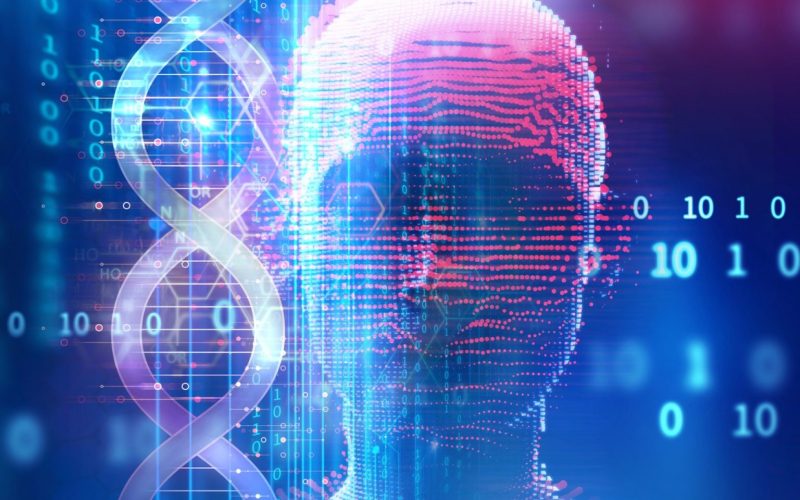In recent years, Artificial Intelligence (AI) has penetrated various sectors, transforming industries with its capabilities. One of the most promising and impactful areas where AI is making significant strides is mental health care. The integration of AI in mental health services is not only revolutionizing the way mental health conditions are diagnosed and treated but is also making mental health care more accessible, personalized, and efficient.
The Growing Need for AI in Mental Health
Mental health disorders are a global concern, affecting millions of people across different demographics. According to the World Health Organization (WHO), depression alone affects over 264 million people worldwide. The traditional mental health care system is often plagued by challenges such as a shortage of mental health professionals, stigma associated with seeking help, and the high cost of therapy. These issues create a gap between those who need care and those who receive it. AI in mental health care presents a solution to bridge this gap by offering innovative tools and methods for diagnosis, treatment, and ongoing support.
AI-Powered Diagnostic Tools
One of the most critical applications of AI in mental health is in the realm of diagnosis. Traditional diagnostic methods rely heavily on self-reported symptoms and clinical interviews, which can sometimes be subjective and inconsistent. AI mental health tools, on the other hand, can analyze vast amounts of data to identify patterns and markers associated with various mental health conditions.
For instance, machine learning algorithms can process data from electronic health records, social media activity, and even wearable devices to detect early signs of mental health issues. These algorithms can analyze language patterns, facial expressions, and voice tones to identify symptoms of depression, anxiety, and other disorders. This capability allows for early intervention, which is crucial for effective treatment.
Personalized Treatment Plans
AI mental health solutions are also enhancing the personalization of treatment plans. Every individual’s mental health journey is unique, and what works for one person may not work for another. AI can analyze data from various sources, including patient history, genetic information, and lifestyle factors, to recommend personalized treatment plans that are more likely to be effective.
For example, AI algorithms can predict how a patient might respond to different types of therapy or medication based on their unique profile. This level of personalization can significantly improve treatment outcomes and reduce the trial-and-error approach often associated with mental health care.

Virtual Therapists and Chatbots
The rise of virtual therapists and AI-powered chatbots is another revolutionary development in mental health care. These digital tools provide immediate support and can be accessed anytime and anywhere, making mental health care more accessible. AI mental health chatbots like Woebot and Wysa use natural language processing to engage in conversations with users, offering cognitive-behavioral therapy (CBT) techniques, mindfulness exercises, and emotional support.
While these chatbots are not a replacement for human therapists, they serve as a valuable complement, providing support during times when professional help is not immediately available. They can also help reduce the stigma associated with seeking mental health care by offering a more private and less intimidating option.
Predictive Analytics for Crisis Intervention
AI mental health technologies are also being used for crisis intervention. Predictive analytics can identify individuals at risk of suicide or severe mental health crises by analyzing patterns in their behavior and communication. For example, AI algorithms can monitor social media posts, search history, and other digital footprints to detect signs of distress and suicidal ideation.
Organizations like Crisis Text Line use AI to prioritize high-risk individuals and provide timely interventions. By predicting crises before they occur, AI can help save lives and provide critical support to those in need.
Enhancing Research and Understanding
AI is also playing a crucial role in advancing mental health research. The ability to analyze large datasets quickly and accurately allows researchers to uncover new insights into the causes and treatment of mental health disorders. AI can identify patterns and correlations that might be missed by traditional research methods, leading to a deeper understanding of mental health conditions.
For example, AI can analyze genetic data to identify potential biomarkers for mental health disorders, paving the way for more targeted and effective treatments. Additionally, AI can help researchers understand the impact of various social, economic, and environmental factors on mental health, leading to more comprehensive and holistic approaches to care.
Ethical Considerations and Challenges
While the potential of AI in mental health care is immense, it is essential to address the ethical considerations and challenges associated with its use. Privacy and data security are significant concerns, as the sensitive nature of mental health data requires robust protection measures. Ensuring that AI algorithms are free from bias and are used ethically is also crucial to prevent discrimination and ensure equitable access to care.
Moreover, the integration of AI should not replace human empathy and the therapeutic relationship between patients and mental health professionals. AI should be viewed as a tool to augment and support human care, rather than replace it.
The Future of AI in Mental Health Care
As AI technology continues to evolve, its applications in mental health care are likely to expand and become even more sophisticated. Future developments may include more advanced virtual reality (VR) therapies, AI-driven mental health apps that offer real-time support, and more accurate predictive models for early intervention.
The collaboration between AI developers, mental health professionals, and policymakers will be essential to ensure that AI mental health solutions are effective, ethical, and accessible to all. By harnessing the power of AI, we can create a future where mental health care is more proactive, personalized, and inclusive, ultimately improving the lives of millions of people worldwide.
In conclusion, AI is revolutionizing mental health care by offering innovative tools for diagnosis, personalized treatment, crisis intervention, and research. While challenges remain, the potential benefits of AI in mental health are vast, promising a future where mental health care is more accessible, effective, and tailored to individual needs. As we continue to explore and develop AI technologies, the integration of AI in mental health care holds the promise of transforming the way we understand and address mental health, ultimately leading to better outcomes for individuals and society as a whole.










